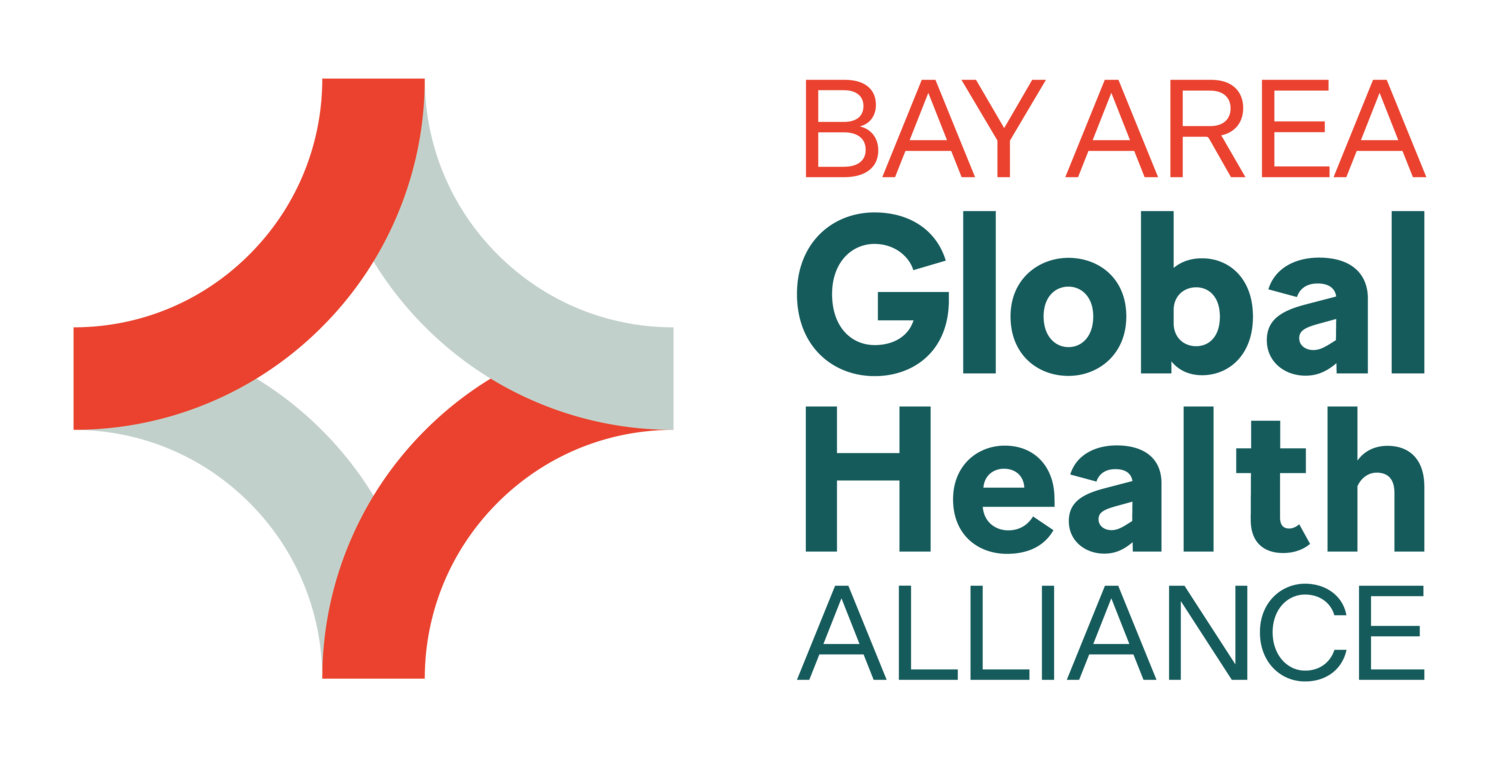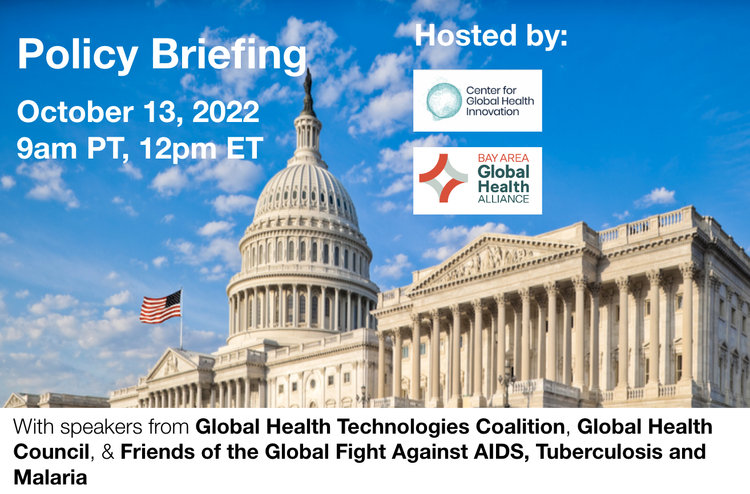You can access the recording here.
On October 13, the Bay Area Global Health Alliance and the Center for Global Health Innovation brought together premier global health advocacy organizations Global Health Council, Global Health Technologies Coalition (GHTC), and Friends of the Global Fight Against AIDS, Tuberculosis, and Malaria to update members on the US government’s global health budget, the impact of the pandemic on policy, new initiatives to spur innovation, and how to elevate equity in the global health agenda.
The Alliance compiled key takeaways and guidance from the briefing that organizations from all sectors can utilize in their advocacy work.
1. Center local voices in global health solutions and technologies.
- Elisha Dunn-Georgiou, president and CEO of Global Health Council, encouraged the global health community to push the idea that local ownership should be part of the solution for normal operations, not just for the pandemic response.
- Chris Collins, president and CEO of Friends of the Global Fight, added that advocates must think collectively about how to use digital technology to equip community health workers with more resources and put more control in the hands of the individual accessing health care.
- Jamie Nishi, executive director of Global Health Technologies Coalition, argued that the inclusive approach should start in the design stage and target all local communities. “When we think about health equity, we talk about designing to the margins. That’s not just for global health as in ‘not the US.’ It is inclusive of the US.”
2. Increase awareness and knowledge of how investment in global health strengthens US health security.
- Dunn-Georgiou’s advice for advocates was to amplify the understanding that “investing in global health is less than 1% of the foreign assistance budget, but yields dividends for Americans and for the rest of the world, both because it protects health and has ramifications for economic prosperity, education, etc.” As the midterm elections are approaching, she added that the GHC produces a Global Health Briefing Book to educate incoming members of Congress about the basics of the budget category.
- Collins strongly recommended that advocates stress the trade and business advantages of global health investment, along with the security and diplomatic gains for the US. It is important to tailor messages for different audiences and work with allies from both sides of the aisle to further the global health equity agenda.
3. Encourage US agencies to take an inclusive, global approach to investing in innovation.
- Nishi provided an overview of the GHTC’s work to ensure that US, bilateral, and multilateral agencies have the tools to tackle complex global health challenges. She introduced The Supporting Innovative Global Health Technologies fund or SIGHT Fund, a proposal to drive inclusive innovation at USAID to support global health.
- Dunn-Georgiou explained that acquiring government funding for innovation and implementing innovation can be a slow process and encouraged organizations to collaborate with civil society. Civil society can help push forward innovations and show that they are useful.
4. Connect with elected officials to vocalize support for global health.
- Collins advised that organizations and regional alliances meet with their elected officials and use tools such as letters and social media to explain why global health is important to their districts. “It’s not just asking them [elected officials] for their support. It’s asking them what they have done specifically to move this ball down the road and holding them accountable.” He added that private sector coalitions can also raise their voices as a collective to support US investment in global health.
- Dunn-Georgiou adds that the ‘thank you note’ is a powerful tool of recognition which can help advocates build relationships with policymakers. She seconds Collins’ point that organizations and alliances should find ways to unite to amplify the global health equity agenda.
This briefing was moderated by Sara Anderson, executive director of the Bay Area Global Health Alliance, and Maria Thacker Goethe, CEO of the Center for Global Health Innovation.

